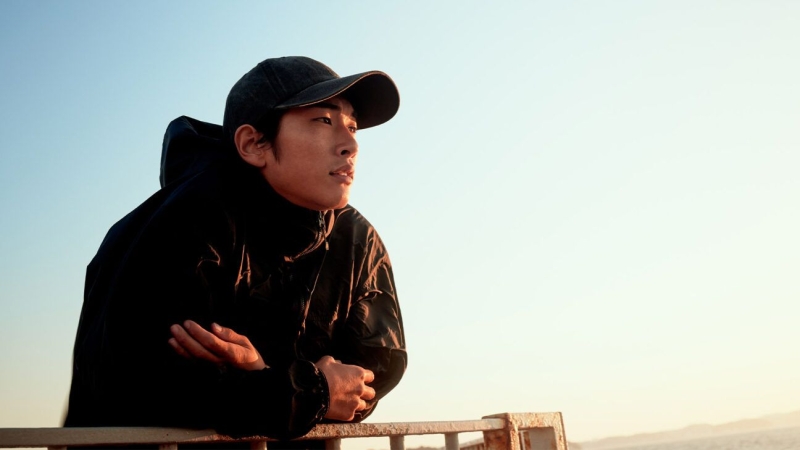Recent research compares psilocybin and antidepressants, particularly focusing on the active compound in magic mushrooms versus a common antidepressant medication. A 6-month follow-up showed both treatments effectively improved depressive symptoms. However, psilocybin also appeared to provide additional benefits, such as enhanced psychological connectedness and improved social functioning. This small study indicates the need for further research to understand the long-term effects of psilocybin.
The Role of Psilocybin and Antidepressants in Mental Health
Psilocybin, found in magic mushrooms, has gained attention over the past few decades for its potential mental health benefits. A new study published on September 21 in eClinicalMedicine compares the antidepressant effects of psilocybin and antidepressants like escitalopram, a widely prescribed selective serotonin reuptake inhibitor (SSRI) for depression.
This study serves as a 6-month follow-up to a previous investigation from 2021, which discovered that two doses of psilocybin combined with psychological support had similar antidepressant effects as escitalopram taken daily for six weeks.
At the six-month follow-up, researchers noted additional psychological benefits in the psilocybin group. Participants reported being more likely to:
- Function effectively in work and social settings
- Experience greater psychological connectedness
- Find more meaning in life
This research represents one of the first direct comparisons of psilocybin and antidepressants in treating depression.
Understanding SSRIs and Their Limitations in Depression Treatment
SSRIs like escitalopram are a common class of antidepressants known for their effectiveness, especially when combined with talk therapy. However, these medications do not work for everyone, and many individuals must take them daily for extended periods to prevent relapse.
Dr. David Merrill, a board-certified geriatric psychiatrist at Providence Saint John’s Health Center in Santa Monica, CA, explained, “Escitalopram is one of the most widely prescribed drugs for depression.” Despite their effectiveness, SSRIs are linked to various side effects, including sexual dysfunction, weight gain, fatigue, and emotional blunting.
For these reasons, scientists seek new approaches to treat depression. Some researchers hope psilocybin could help address this gap.
Promising Findings from Studies on Psilocybin and Antidepressants
Several small studies indicate that psilocybin may have a robust antidepressant effect. A preliminary study in 2016 found that a high dose of psilocybin, along with psychological support, significantly improved depression symptoms for three months while also reducing anxiety and anhedonia. Similarly, a 2023 study concluded that psilocybin had a “sustained” antidepressant effect compared to a placebo.
Importantly, these studies identified few serious side effects, and treatment appears effective for weeks or months after just a single dose.
To date, few studies have compared psilocybin directly with standard antidepressants, making this new research particularly valuable.
Sustained Improvements in Depression Symptoms with Psilocybin
The recent study involved 59 participants diagnosed with moderate-to-severe major depressive disorder. Researchers divided them into two groups:
- Two 25-milligram oral doses of psilocybin, combined with psychological support.
- A 6-week course of escitalopram paired with the same psychological support level.
After six months, participants in both groups experienced sustained improvements in their depressive symptoms.
Dr. Ozan Toy, a neuropsychiatrist not involved in the study, remarked, “While several studies have shown psilocybin’s potential to reduce depressive symptoms, this study’s strong and sustained effect for six months, even after just two doses, is noteworthy.”
Additionally, those who took psilocybin reported better:
- Functioning at work and in social situations
- Psychological connectedness with others
- Sense of meaning in life
Dr. Brook Choulet, a board-certified psychiatrist not associated with the study, expressed surprise at the long-term improvements in social functioning and psychological connectedness observed in participants treated with psilocybin.
How Psilocybin Works in Comparison to Antidepressants
Neuroplasticity refers to the brain’s ability to reorganize itself in response to new experiences. This adaptability is vital for learning new skills and coping with change, both of which can alleviate depression.
“Psilocybin interacts with serotonin receptors in the brain, particularly the 5-HT2A receptor,” Dr. Toy explained. “This interaction promotes neuroplasticity, allowing for a ‘reset’ of rigid thought patterns, which may help alleviate depressive symptoms.”
Moreover, psilocybin alters activity in brain regions associated with mood regulation and self-reflection, leading to unique experiences such as ego dissolution or cognitive reappraisal.
Ego dissolution refers to the feeling of losing oneself, which can be beneficial for those struggling with depression. Cognitive reappraisal involves reframing negative situations positively, helping individuals view challenges as growth opportunities.
The Future of Psilocybin in Treating Depression: A Comparison with Antidepressants
While there is considerable excitement about psilocybin and antidepressants as treatments for mental health conditions, some caution is warranted. Dr. Toy emphasized, “The excitement is justified, given psilocybin’s potential to treat resistant depression, anxiety, and PTSD.”
However, concerns remain about long-term effects, accessibility, and the need for comprehensive safety data to better understand the associated risks and benefits.
As the evidence for psilocybin expands, further research is crucial before it can be made widely available to the public. Experts advise against self-treating depression with psilocybin at home. “Psychological support is essential for ensuring safety, guiding the experience, and integrating insights gained,” Dr. Toy stated.
“Without professional supervision, individuals may encounter overwhelming emotions, anxiety, or negative experiences that could worsen their mental health issues. It is vital that these powerful substances are used in controlled, safe environments,” he cautioned.
Dr. Choulet echoed this sentiment, noting concerns about potentially distressing psychological experiences or the risk of inducing psychosis.
Conclusion: Evaluating Psilocybin and Antidepressants for Depression
Dr. Merrill believes that psilocybin may play a significant role in future depression treatment. “This research helps us understand the mechanisms of depression,” he said, while noting that there may be alternative ways to achieve similar benefits without the drugs. Holotropic breathing, for instance, might offer helpful techniques for depression, but it should only be attempted under the guidance of experienced practitioners.
Ultimately, Dr. Merrill hopes that further investigation of psilocybin will pave the way for its legalization and FDA approval for scheduled use in controlled settings.


